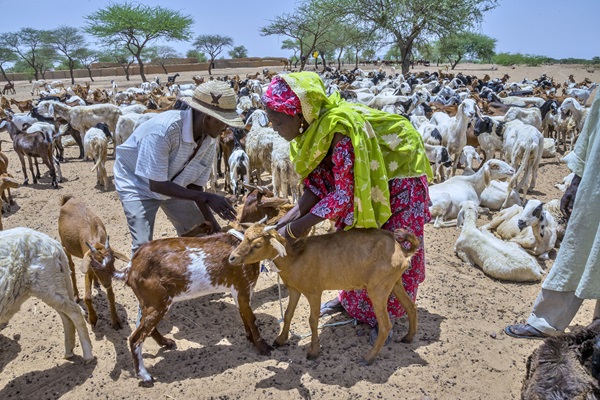
Rome - The first Plenary Assembly of the Antimicrobial Resistance Multi-Stakeholder Partnership Platform opened today at the Rome headquarters of the Food and Agriculture Organization of the United Nations (FAO).
The two-day meeting, which is being held ahead of 2023 World AMR Awareness Week, brings together more than 150 stakeholders from around the globe, encompassing governments, civil society, research, academia, the private sector, financial institutions, intergovernmental organizations and specialized UN agencies. Its overarching aim is to collectively address ways of preserving antimicrobials as lifesaving medicines for humans, animals, plants and ecosystems using the One Health approach.
This is the first time that the Plenary Assembly is meeting since the AMR Partnership Platform was launched in 2022 by the Food and Agriculture Organization of the United Nations (FAO), the UN Environment Programme (UNEP), the World Health Organization (WHO) and the World Organisation for Animal Health (WOAH), collectively known as the Quadripartite.
The Plenary started with opening remarks by the leaders of the four organizations, followed by a series of panel discussions focusing on the Platform’s collective governance and proposals for the action groups. The second and final day of the Plenary will see participants discuss preparations for a crucial UN General Assembly High-Level Meeting on AMR, scheduled to take place in 2024, and a joint way forward within the Platform.
Seeking solutions
Antimicrobials are agents used to control and treat infectious diseases in humans, animals and plants. They include antibiotics, fungicides, antiviral agents and parasiticides. Disinfectants, antiseptics, other pharmaceuticals, as well as some natural products, may also have antimicrobial properties.
AMR occurs when bacteria, viruses, fungi and parasites no longer respond to antimicrobial agents. As a result of drug resistance, antibiotics and other antimicrobial agents become ineffective and infections become difficult or impossible to treat, increasing the risk of disease spread, severe illness and death.
The issue poses an increasingly visible, urgent and complex threat to global health and development, animal health, food safety and food security, as well as ecosystems.
In 2019, 5 million human deaths worldwide were associated with bacterial AMR, of which 1.3 million human deaths were directly attributable to bacterial AMR. Up to 28 million could be pushed into extreme poverty if AMR is not addressed. Moreover, approximately 75 percent of antibiotics are not absorbed by the animals and are released into water and soil, which can directly contaminate and harm the surrounding environment. In humans, antimicrobial resistance takes place as a result of the misuse of antibiotics.
There are no simple solutions. Developing a new antibiotic, for instance, can take 10-15 years and cost more than $1 billion.
That is why all sectors across the One Health spectrum spanning human, animal, plant, and the environment must work together to ensure the responsible use of antimicrobials while taking preventive measures to decrease the incidence of infections.
The following actions have been identified as helping reduce the need for antimicrobials and minimize the emergence of AMR:
• strengthen infection prevention and control in health facilities, farms and food industry premises
• ensure access to clean water, sanitation and hygiene, and vaccines
• minimize pollution and ensure proper waste and sanitation management
• ensure access to quality-assured healthcare for all
• ensure access to advice from experts during animal, food and agricultural production
What the Quadripartite leaders said:
"Today’s Inaugural Plenary Assembly brings together the pioneers and champions of AMR, who share common concerns and shoulder collective responsibilities. The success of the Platform will depend on clear goals, an effective governance structure, visionary leadership, trust, transparency, and the sustained engagement of Members to drive change," said FAO Director-General QU Dongyu.
"The environment plays a key role in the development, and the transmission and spread of AMR," said UNEP Executive Director Inger Andersen. "The global response to AMR clearly requires a close collaboration between sectors so that we can tackle AMR from the pharmaceuticals sector, from the agriculture and food sector, aquaculture, the healthcare and hospital waste management sector, and municipal wastewater management, and of course from farming waste."
"AMR is not a future crisis. It’s here and now. We need urgent action, based on a shared global vision and narrative, and ambitious targets to which we hold ourselves accountable. We can succeed, but only with concerted and coordinated action," said WHO Director-General Tedros Adhanom Ghebreyesus.
"We are in a race against time. Urgency is the watchword. It is crucial that we mobilize our collective efforts now to address AMR comprehensively for the health of people, animals, plants and our planet, leaving no one behind," said WOAH Director General Monique Eloit.